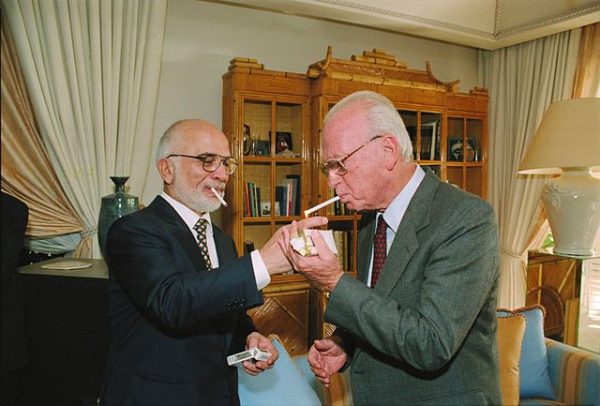Without divulging names, Israeli Prime Minister Benjamin Netanyahu has let it be known that Israel has established informal and unofficial bilateral relations with Sunni Arab regimes fearful of Iran’s growing influence in the Middle East, particularly in Syria and Lebanon. It’s no big secret that Saudi Arabia, an oil-rich conservative ally of the United States, is one of the nations to which Netanyahu alluded.
Netanyahu and his friends appear to believe that Israel can eventually build a normal relationship with the Saudi kingdom without bothering to resolve one of the major problems in the region — the long-simmering Palestinian issue.
This is a grand illusion, of course.
Neither Saudi Arabia, nor any other Sunni Arab state which shares common strategic interests with Israel, would dare forge diplomatic relations with Israel unless the Palestinians have finally achieved statehood within the parameters of an equitable peace agreement.
Until then, Israel’s ties with Arab countries such as Saudi Arabia will remain purely clandestine, extremely sensitive and subject to denial.
Case in point: Yesterday, the Israeli media reported that the Saudi Arabia Aviation Authority stoutly denied having granted the use of its airspace for flights between Israel and India.

According to reports, India and Saudi Arabia recently signed an agreement permitting Air India to offer direct flights from Tel Aviv to New Delhi starting on March 20. The route of these flights would pass over Saudi Arabia, saving about two hours of flight time. Netanyahu discussed this idea with Indian government officials during his recent visit to India.
It would certainly be a coup for Israel if Saudi Arabia permitted commercial airliners taking off from Ben-Gurion Airport to fly over its airspace en route to a third country. But judging by the reaction of the Saudi Arabia Aviation Authority, this is not to be, at least for the present. It’s clear that the Saudi government will not stick out its neck and risk antagonizing the Saudi people — who are deeply anti-Israel thanks to decades of official brainwashing — unless the profound political impasse between Israel and the Palestinians is decisively broken.
Two precedents come to mind.
King Hussein of Jordan did not establish formal diplomatic relations with Israel until 1994, a year into the Oslo peace process. And Egyptian President Anwar Sadat conditioned his historic trip to Israel in 1977 on the understanding that Israel would withdraw from the Sinai Peninsula and deal constructively with the Palestinian imbroglio.

Given the breakdown of negotiations between Israel and the Palestinian Authority since the collapse of their peace talks in 2014, even countries like Egypt — which signed a peace treaty with Israel in 1979 — are reluctant to acknowledge bilateral cooperation.
On February 3, The New York Times reported that Israeli jets, helicopters and drones have carried out a wave of strikes against Sinai Province — the Egyptian branch of Islamic State — in the northern Sinai since the end of 2015. The newspaper said that Israel and Egypt are now “secret allies in a covert war against a common foe.”
As expected, Egyptian President Abdel Fatah el-Sisi was less than pleased by this disclosure. His spokesman, Colonel Ahmed Ali, claimed the story was a fabrication. “There is no truth in form or in substance to the existence of any Israeli attacks insider Egyptian territory,” he said. “The claims of coordination between the Egyptian and Israeli sides in this matter are totally lacking in truth and go against sense and logic.”

Not quite.
Ever since Sisi ousted Mohammed Morsi in a coup d’état in 2013, the level of strategic cooperation between Israel and Egypt has never been higher, as Israel’s ambassador in Cairo has noted. But on a grassroots level, Israel is deeply unpopular among the vast majority of Egyptians. The lingering Palestinian problem is often cited as one of the reasons so many Egyptians hate Israel.
Israel’s relationship with Jordan is bound by the same constraints. The two nations share a common objective in combatting Islamic fundamentalism and keeping their border quiet and stable. But as far as most Jordanians are concerned, Israel is still the Zionist enemy. This is especially true among Jordanians of Palestinian descent, who form about two-thirds of Jordan’s population.
Animosity toward Israel in Jordan and Egypt would be far more muted if the Palestinians had a state to call their own. This is something that the Saudis, but not the current Israeli leadership, understand keenly. Which is precisely why Saudi Arabia will not allow aircraft from Israel to fly over its airspace any time soon.
